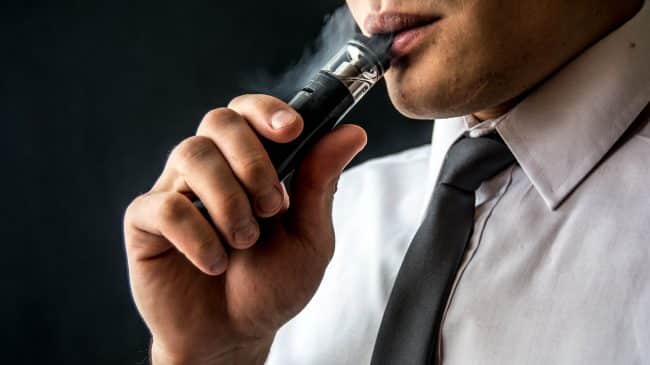Across the pond, U.K. health authorities have been contemplating whether e-cigarettes should be provided on prescription by the National Health Service. Public Health England’s latest evidence review extolls the virtues of vaping as a dramatically safer alternative to smoking. There’s even a helpful blog on the government’s website debunking some of the popular myths around vaping like, “E-cigarettes give you ‘popcorn lung.’”
But closer to home, the Food and Drug Administration, driven by the remorselessness of its own regulatory logic, is marching down a path that could see more than 99 percent of e-cigarette products taken off the market by 2022.
This regulatory nightmare stems from the FDA’s Deeming Rule, which came into effect August 8, 2016, and deemed all vapor products as tobacco products. The Deeming Rule requires that all e-cigarettes not sold on or before February 15, 2007 — the predicate date — undergo an enormously complex and prohibitively expensive premarket review process that only the biggest companies can comply with. Because no e-cigarettes were available in the U.S. prior to February 15, 2007, all vapor products currently on the market will have to go through this process.
Most e-cigarette companies won’t even attempt to file these applications due to their enormous costs. Industry estimates derived from FDA analysis suggest 99 percent of all products will be withdrawn from the market, destroying tens of thousands of jobs and severely limiting access to potentially life-saving products for smokers who want to quit unless Congress acts.
So, while the rest of world innovates and continues to give smokers access to safer to better and products that will help smokers quit, America could be in a position where cigarettes can be sold just as easily as before, but the market for safer alternatives will be wiped out.
Last year, FDA Commissioner Scott Gottlieb extended the deadline for submission of PMTAs. Part of his reasoning for delaying the application deadline was “to allow the FDA to encourage innovation that has the potential to make a notable public health difference — and to inform future policies and efforts that will protect kids and help smokers quit cigarettes.”
Gottlieb and health experts from around the world recognize that e-cigarettes are substantially less harmful than cigarettes and have huge potential to improve public health.
The National Academies of Sciences Engineering and Medicine, Public Health England, and the Royal College of Physicians all conclude that e-cigarettes produce dramatically lower levels of toxic chemicals than combustible cigarettes and that smokers who exclusively switch to these products are significantly lowering their exposure to these harmful and potentially harmful chemicals.
According to a 2017 study conducted by Dr. David T Levy and colleagues, replacement of cigarette use by e-cigarette use over a 10-year period would yield 6.6 million fewer premature deaths with 86.7 million fewer years lost under their most optimistic scenario. But even under their pessimistic scenario, 1.6 million premature deaths are averted with 20.8 million fewer years lost. “The largest gains are among younger cohorts, with a 0.5 gain in average life expectancy projected for the age 15 years cohort in 2016,” according to Levy, et al.
While far from a fix-all solution, legislation sponsored by Reps. Tom Cole, R-Okla., and Sanford Bishop, D-Ga., would modernize the predicate date, ensuring the survival of domestic e-cigarette businesses while providing additional protections to ensure minors are not exposed to these products.
Modernizing the predicate date would further FDA’s own goals of ensuring a sufficient space for innovation and access to safer nicotine products. Last year, Gottlieb made clear that “nicotine — while highly addictive — is delivered through products that represent a continuum of risk and is most harmful when delivered through smoke particles in combustible cigarettes.” The FDA recognizes it is the smoke from combustible cigarettes, not nicotine, which is responsible for more than 480,000 deaths annually in the U.S.
Amending the Deeming Rule is a golden opportunity to ensure proper regulations are in place to protect minors from adult products while at the same time ensuring smokers who wish to quit have access to a wide-range of safer products that can help them do so.
The majority of those smokers have tried to quit, often numerous times, but failed. E-cigarettes provide an innovative option for smokers to quit by switching to a much safer product. Congress must act to put the breaks on e-cigarette prohibition and prevent hundreds of thousands of needless deaths.
This column first appeared in The Washington Examiner.

